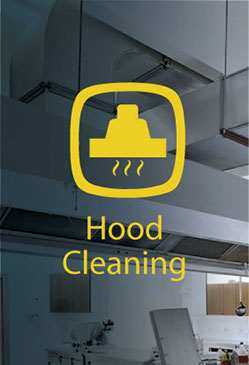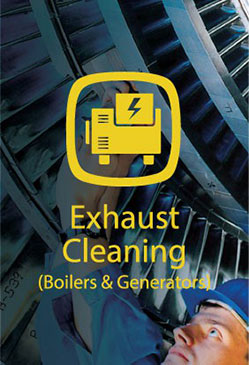Why should you be concerned about your kitchens & surrounding areas internal ventilation systems?
Fire Suppression and safety
For years,advanced countries such as United States, Canada, Australia, New Zealand, Japan, China as well as all European Countries have imposed the ventilation airways cleaning task for various reasons.
One reason stands as important “safety”.
We sometime overlook the unseen facts when we operate our equipment. But the true facts can be substantially damaging and harmful.
Below are the most important points to consider:
a) Grease accumulation: “leading to fire hazard“
b) Moisture & contaminants accumulation: “leading to bacterial formation”
c) Dust particle accumulation: “leading to airways clogging and prevents fresh air circulation”
d) Unwanted odors: “leading to unpleasant and uncomfortable atmosphere”
In all above cases we well know that the daily cleaning will only be exercised in accessible surfaces, a task that is important in the restaurant business but not enough for a long period of time.
Overtime a busy restaurant must consider a minimal risk of accident yet causing the highest damage possible such as fire, deadly disease, food contamination and unusual odors. Grease in a stove hood is a combustible and explosive element if ignored and untamed.
We have recently heard of some explosions in restaurants’ kitchens but we don’t pay too much attention to the real causes. We automatically blame it on a propane leakage or electrical short, which are in some, cases the true reason. Yet a sizeable kitchen duct can instigate a secondary explosion that will lead to additional and more damaging facts.
Bacterial formations pose a substantial issue to investigate and it requires a serious and professional practice to resolve.
Bacteria react to hot and cold temperatures. It reproduces itself at certain hot temperatures and breaks the bonding agents in the grease at cold temperatures. That could lead the mixture of Bacterial agents to break from the hood and duct walls. Finally it will travel back and forth
within the duct airways causing a major clogging in the internal filters, Ts & Ls & Us in the duct line up as well as clogging the end trap grids ending by disrupting the suction task. If broken bonding agents continue their journey back and forth, up & down stream over a considerable period of time it may lead those broken particulate to further break into dusty particulate at a close range of 0.5 micron where they will end up most definitely back through the suction filters and back into the food environment contaminating the food and the fresh air at once.
Bacteria reaching its peak of reproduction will certainly create an unpleasant odor especially when shorting vegetable paste is used for the cooking process.
In brief the chemical and physical explanation may take pages to read. Yet it is important that
you look at all the facts before it gets too late.
Our role comes in explaining it, providing you with the proper literature if required then tell you how we can help you.
Controllers Services have certified agents for the career. They use the proper techniques according to the international standards to clean and treat your grease extract entire system from A to Z.
We will be pleased to assist you and assess all your needs in a short visit to your institution.
Do not hesitate to contact us for any further information.



